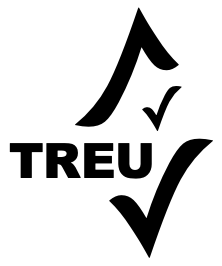


The 2025 REU Posters were these:
Evaluating In-Context Learning with Distribution Shifts, Sameera Nageshwar (Univ of Maryland); Advisor: Aditya Bhaskara
Characterization of Sparse Matrix Reordering Performance, Jack Cashman (Univ of Rochester); Advisors: Omid Asudeh and Saday Sadayappan
Analyzing Cognitive Change and Ability Through Crossroads Fine-Finger Tracking, Hannah Larsen (Univ of Utah); Advisor: Vineet Pandey
A Co-Design Study to Develop a Clinician Dashboard for Movement Disorder Specialists, Vivian Zheng (Stony Brook University); Advisor: Vineet Pandey
Neurovoice Tool for Diadochokinetic Cognitive Assessment, Alex Goff (University of Utah); Advisor: Vineet Pandey
Publicly-Detectable Watermarking For Image Generative Models, Eliana Du (Princeton), Bryce Crouse (Univ of Utah), Kayle Shurtliff (Univ of Utah); Advisor: Pratik Soni
Investigating Limits of Deep Learning based Medical Segmentation and Classification Models, Joshua Lee (De Anza College) and Hannah Morrison (Centre College); Advisors : Tushar Kataria and Shireen Elhabian
AstroMeans: Identifying Outliers in Radio Astronomy Data, Muhammad Mir (Columbia Engineering); Advisor: Jeff Phillips
Comparing Static and Empirical Floating Point Error Analysis Methods, Vinci Shi (Bowdoin) and Brian Chen (Binghamton); Advisor: Ganesh Gopalakrishnan
Applications are now Closed. This was posted earlier in 2025. Watch this space for 2026 This is for undergraduate students at all levels (US Citizens, Permanent Residents) to be selected for a 10-week NSF Research Experience for Undergraduates Traineeship held from (watch for 2026 - this was May 27, 2025, till about August 2nd, 2025). The traineeship will be offered at the campus of the University of Utah, in the Kahlert School of Computing, located near the majestic Wasatch Mountain ranges. The application deadline is March 22, 2025, and we expect to fund only about 10 REUs. The selected students will earn a stipend of (watch this space - was $7,200) for this period. Compensation for airfare, room and board are additional to this.
We will introduce our trainees to the basics of many exciting and crucially important computer science research areas such as High Performance Computing, Machine Learning, and Wireless Networking. The emphasis is on hands-on demonstrations of these technologies, and how trust and reproducibility are enhanced in these areas.
This opportunity is open to students early in their undergraduate career, and no research experience is required. We encourage applications from students of all backgrounds, hoping to enrich their experience with their joint presence at our beautiful campus.
(Closed for 2025) APPLY HERE.
We are glad to report that all our prior students did great work toward the REU Site. Three results stand out, in particular
We will introduce the basics of High-performance Computing (HPC), including how numerical algorithms are specified conveniently using Jupyter notebooks and submitted for execution on supercomputers. Our guided approach will help you start a day not knowing anything about HPC and end that day having submitted, run and gathered your first HPC simulation results!
We will introduce our trainees to the process of classifying images using machine learning (ML). The trainees will use state-of-the-art ML training systems that are driven by Jupyter notebook-based scripts in order to achieve acceptable levels of classification accuracy. Our guided approach will help you start a day not knowing anything about ML and end that day having trained a Neural Network to classify (say) X-Ray images with prescribed accuracy targets.
We will demonstrate advanced wireless networking in the context of Utah’s POWDER project. Our approach will help you quickly learn how software-defined radios work. You will be guided through the process of collecting data from our on-campus shuttle buses as to their locations.
Cohort activities will interweave themes not usually part of undergraduate programs: Ethics, Inclusion, and Research Training. The REU participants will meet as a cohort for training on these specific topics, and REU participants will work with their faculty mentors one-on-one to put those topics into practice in their individual projects
Optional Social Activities. These include nearby hikes (e.g., Ensign Peak), rock-climbing wall at the Eccles Student Life Center, visits to the campus Natural History Museum, a trip to the Antelope Island and local events such as the Latino Arts Festival and the Twilight Outdoor Concert Series.
In a broader sense, HPC is fundamental to grand-challenge issues ranging from Climate Research to Fighting Pandemics. ML plays a pivotal role in our day-to-day lives including in Medical Diagnosis from MRI Images all the way to Self-Driving Cars. ML also reduces or eliminates hours of HPC simulations by taking decisions based on data rather than laborious computations. Computer Networking is fundamental to the connected society. It also enables smart devices that will be in our pockets or in our cars to ``talk to each other.’’ We will introduce the trainees to methods that enhance the security and integrity of the communicated data.
The training imparted will cover not only in the aforesaid technical priority areas but also many ancillary areas including ethics, inclusivity, and microaggression management. There will be plenty of hands-on research projects, cohort-building activities, and (last but not least) fun social activities.
Activities in this REU site are sponsored by the National Science Foundation (NSF)’s Office of Advanced Cyberinfrastructure (OAC) whose mission is to train tomorrow’s workforce in areas such as covered by this REU site.
For additional questions, please email reu-site-utah-ksoc@googlegroups.com (kindly do not send-in any personal information other than through the above site, and unless requested). There are also instructions provided at our REU Site: Trust and Reproducibility of Intelligent Computation listed within the NSF ETAP Portal
–